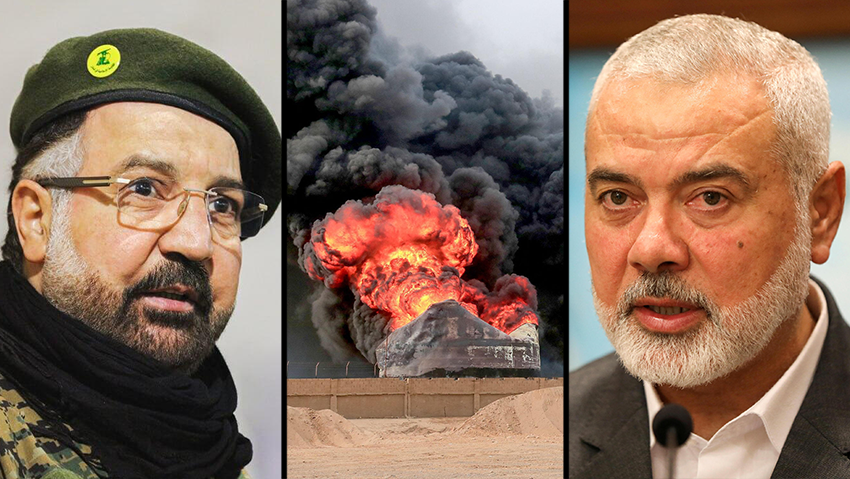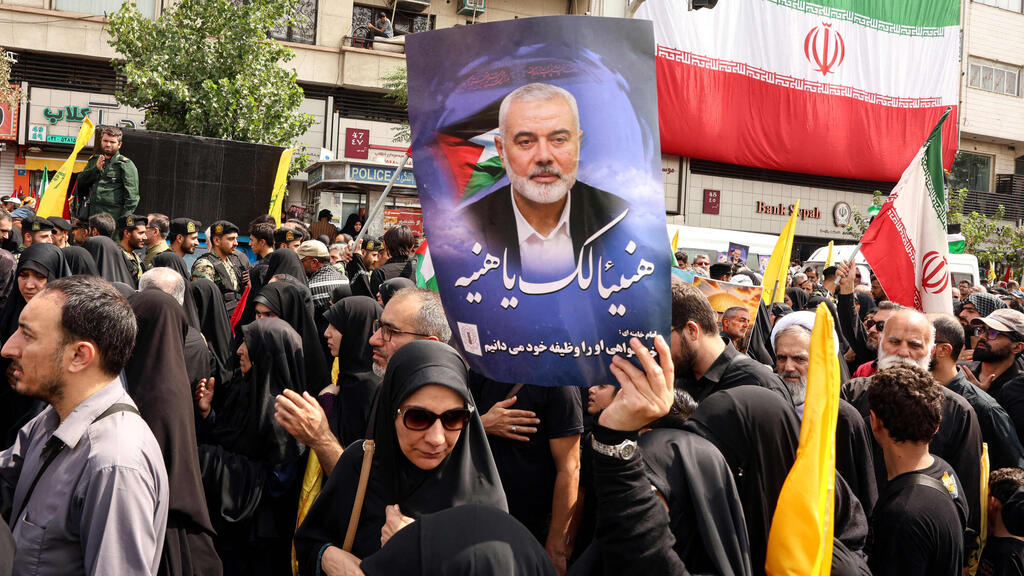Getting your Trinity Audio player ready...
Iran and its regional proxies convened on Thursday to discuss potential responses following the killing of Hamas chief Ismail Haniyeh in Tehran on Tuesday.
The Hamas political leader died in an explosion at a residence used by guests of the Revolutionary Guard Corps in an attack attributed to Israel. Haniyeh was in Iran for the swearing-in ceremony of President Masoud Pezeshkian.
2 View gallery


Fuad Shukr; Hodeidah port, Yemen; Ismail Haniyeh
(Photo: Mohamed Azakir / Reuters, AFP)
Iran's Supreme Leader Ali Khamenei said that the response would involve a direct attack on Israeli soil, according to reports. Although the decision rests with Iran's Supreme National Security Council, led by Pezeshkian, Khamenei is expected to make the final call.
Haniyeh's assassination followed an Israeli attack on Beirut's Dahieh district, killing Hezbollah's top military commander Fuad Shukr. The attack was Israel's response to the massacre of 12 children in the Druze village of Majdal Shams on Saturday, resulting from a Hezbollah rocket attack.
Hezbollah leader Hassan Nasrallah is expected to address his followers later Thursday during Shukr's funeral and may speak on the group's planned revenge for the commander's death.
Following Israel's bombing of Yemen's Hodeidah port last month in response to a Houthi drone attack on Tel Aviv, the Iranian proxy group vowed retaliation, leaving Israel facing potential attacks from Hezbollah in Lebanon, Houthi rebels in Yemen and Iran itself.
In an interview with the Associated Press, Andreas Krieg, a military analyst and senior lecturer in security studies at King’s College London, noted that Hezbollah is likely to carry out a significant retaliatory strike.
"I think Hezbollah has been hit much harder, much more where it hurts than Iran," he said. "In the Israeli-Hezbollah confrontation, this is a major escalation whereby Hezbollah has to respond adequately in a more or less timely fashion to restore deterrence."
Krieg suggested that Hezbollah might target a significant military site, "such as an air force base near Haifa, which appeared in surveillance footage released by the group in July, rather than a civilian target."
Regarding Iran, Krieg indicated the response might be more severe, as the killing of Haniyeh while he was a guest of the regime represents a humiliation and damages Iran's reputation. "Haniyeh is not an integral part of the axis of resistance," Krieg said. "His death has no strategic implications for Iran other than it being a slap in the face because you're the host and your guest was killed while you were on watch," he added.



